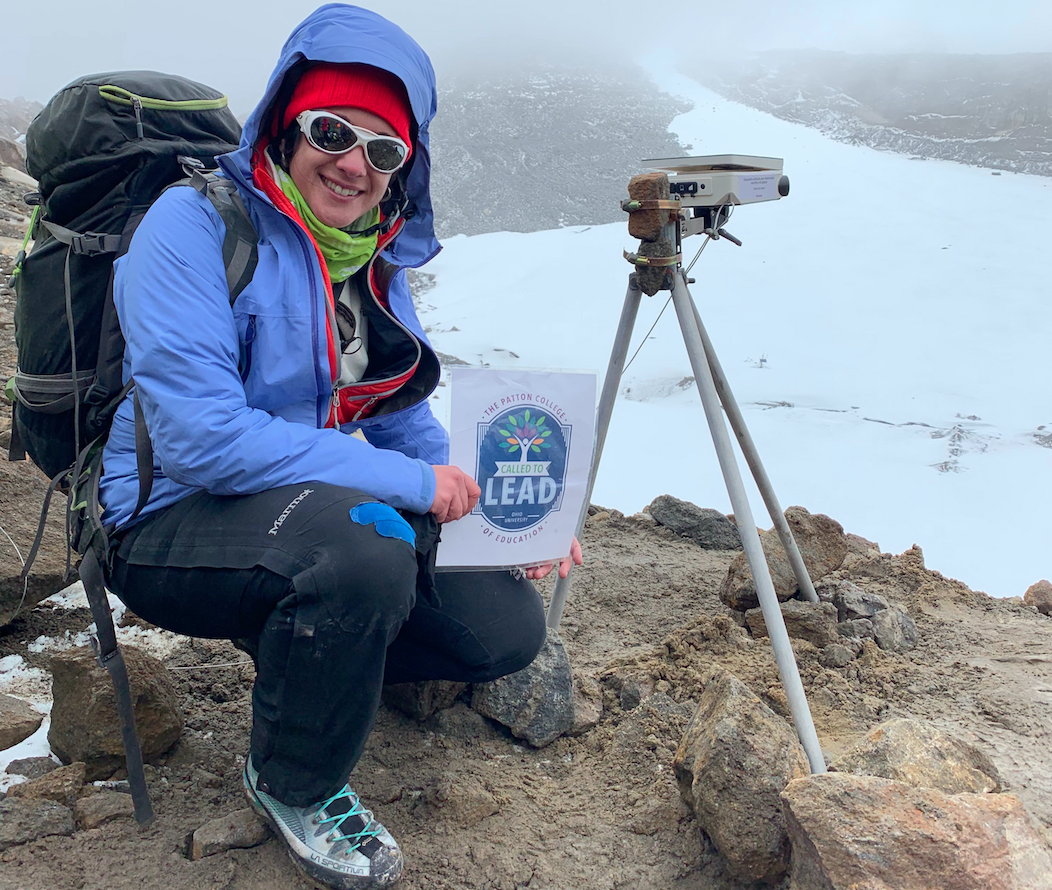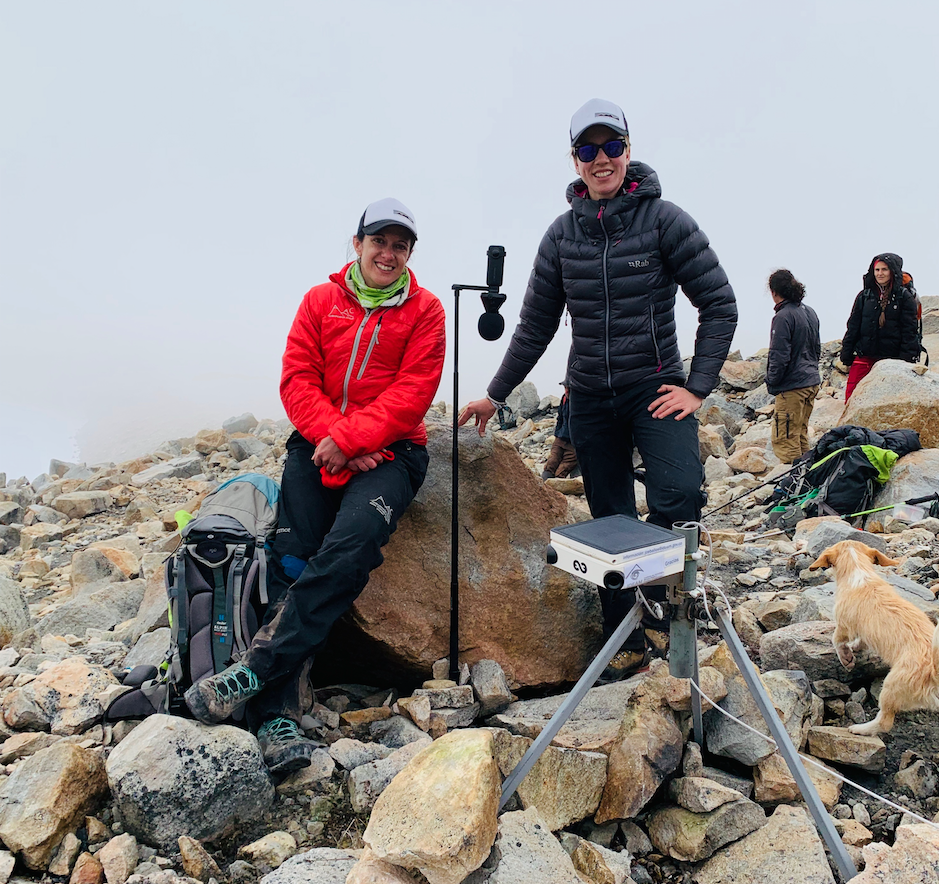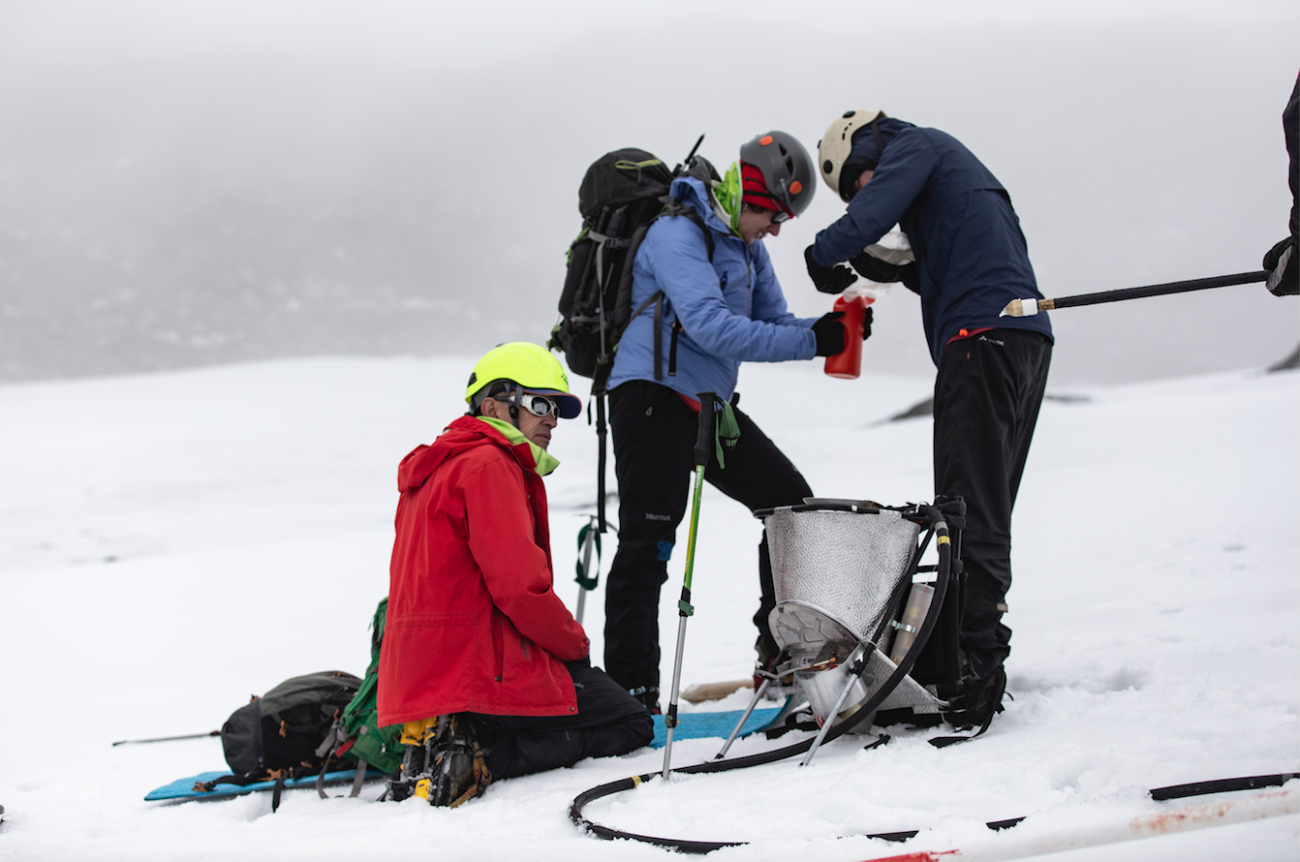Doctoral student studies ice-covered volcano — one of the last tropical glaciers in the world
Nina Adjanin, a doctoral student in The Patton College of Education’s Instructional Technology program, traveled to Colombia for a glaciology study Oct. 30 to Nov. 13. Adjanin and her team researched Santa Isabel, an ice-covered volcano and one of the last remaining tropical glaciers in the world.
“The few glaciers that are found in the tropical regions are losing their fight against climate change,” said Adjanin, who is studying Instructional Technology with a focus in distance learning in extreme environments. “In less than a decade, most of these glaciers will be gone. This project aims to document the last years of the tropical glaciers by combining science, adventure, and storytelling.”
Adjanin was part of a four-person research team led by French glaciologist Dr. Heidi Sevestre. They, along with photographer Antoine Kremer and alpinist Bryan Mestre, collaborated with Dr. Jorge Luis Ceballos, who has worked for the Institute of Hydrology, Meteorology and Environmental Studies (IDEAM) in Colombia for nearly 25 years, as well as Cumbres Blancas, a voluntary organization seeking to protect glaciers.

Adjanin spent two weeks in the Colombian mountains and observed Santa Isabel, which is located in Los Nevados National Park. The team collected scientific data and installed a time-lapse camera provided by ENLAPS to track glacial changes. The glacier, which is 16,240 feet above sea level, is thinning at a rate of two to three meters per year and retreating 20 to 25 meters annually.
“This glacier will be gone in the next few years,” said Adjanin. “We will tell the tale of this glacier and of the ecosystems it helps sustain. It is a big problem for the indigenes people that are depending on this glacier.”
Ice is an important part of the water cycle and climate, even in tropical areas. Glaciers are connected to wildlife, marine life, human activities, and coastal towns in significant ways.
“These glaciers are affected by increasing air temperatures,” said Adjanin, “and also tremendously by the ashes coming from nearby volcanoes, which are darkening the ice and catalyzing its melting.”
Adjanin, who is from Serbia, is no stranger to adventure and expeditions. A former high-altitude mountain guide, she has climbed Mount Everest and Mount McKinley and even sailed across the Atlantic from Gibraltar to the Caribbean. In 2018, she spent two weeks in the Arctic researching glaciology with Sevestre and others for a project called “Glaciers on the Move.” GRID Lab provided necessary equipment for the expedition, including 360- and time-lapse cameras to collect data, monitor movement, and facilitate distance-learning.

“I used a 360 camera for recording, and that is part of my dissertation,” said Adjanin. “I’m looking at how students can better understand climate change with the use of 360.”
Many people, of course, do not have an opportunity to visit or research in extreme environments. Adjanin, who received her master’s in Outdoor Recreation and Education from The Patton College and is pursuing a second master’s in Educational Research and Evaluation, hopes her research helps people understand how—and why—climate change is occurring.
“Time is running out,” said Adjanin. “We need to tell the story of these glaciers and of the populations that depend upon them.”
Adjanin and her team aren’t only conducting research; they are also covering their tracks. Realizing that their own research has a negative impact on the planet, each member of the team has calculated their personal carbon footprint. To make a positive impact, they plant trees in each location they visit. With the assistance of the local police/military and a few local sport clubs, they planted saplings in an area in Colombia that had been devastated by fire. And they intend to plant trees wherever their research takes them.

In addition, the team is developing CO2 offset programs for each of their universities. For instance, air travel represents an average of six percent of a university’s carbon footprint. To offset the impact of travel pollution caused by Ohio University, Adjanin is working with the Office of Sustainability to prepare a positive-impact program for OHIO. This will include plans for planting trees, cleaning water, recycling, waste reduction, solar energy usage, education, and raising awareness.
Adjanin is continuing her adventures this summer. In July, she plans to travel to Africa to study another tropical glacier in Uganda. The team will collect additional data and work with local universities on protecting glaciers. In addition, they intend to work with the local communities to find solutions for reducing the impact of global warming in their environment.
Upon graduation, Adjanin hopes to continue her work developing virtual classes and distance learning. Her aim is to bring the wonders of the world into the classroom and use education to further protect them—and our environment—for future generations.
